African grey parrots are beautiful and intelligent birds that make wonderful pets. However, as with any living creature, African greys can become sick or develop health problems. Recognizing the signs of illness in your grey parrot is crucial to ensure that your bird receives prompt and appropriate medical attention.
In this blog post, we will discuss some common signs of illness in African grey parrots and provide tips on how to keep your bird healthy and happy.
Grey parrots also have a wide range of emotions and can show signs of illness that are not always easy to detect. In this article, we will take a look at possible signs that an African Grey may be sick and what you can do to help them feel better.
Loss of Appetite
Greys are known to have a healthy appetite and enjoy a variety of foods. One of the first signs of illness in an African grey is a loss of appetite. If your bird is not eating or drinking as much as usual, it may be a sign that something is wrong. In some cases, birds may refuse to eat altogether, which can lead to serious health problems.
Lethargy
Another sign of illness in African grey is lethargy or a lack of energy. If your bird is sleeping more than usual, sitting at the bottom of the cage, or not engaging in their usual activities, it may be a sign that they are not feeling well. Lethargy can be a symptom of many different illnesses, so it is essential to monitor your bird closely and seek veterinary care if the behavior persists.
Respiratory Issues
African grey parrots are prone to respiratory issues, and it is crucial to keep an eye out for any signs of respiratory distress. This can include wheezing, coughing, sneezing, or labored breathing. If you notice any of these symptoms, it is essential to seek veterinary care as soon as possible.
Changes in Droppings
Monitoring your bird’s droppings is an essential part of keeping them healthy. Changes in the color, consistency, or frequency of droppings can be a sign of illness. Diarrhea, blood in the droppings, or a lack of droppings can all be signs that something is wrong with your bird’s digestive system. If you notice any changes in your bird’s droppings, it is essential to seek veterinary care right away.
Behavioral Changes
Greys are highly social birds that enjoy interacting with their owners. If your bird suddenly becomes aggressive, withdrawn, or shows other behavioral changes, it may be a sign of illness. Changes in behavior can be a symptom of many different illnesses, so it is essential to seek veterinary care to determine the underlying cause.
Some warning signs of illness in African Grey parrots include:
- Strange or unusual behavior (i.e., not eating, sleeping, or talking much)
- Dropping food from the beak (which is usually a sign that they’re not feeling well)
- Frequent sneezing or coughing
- Swelling around the eyes or mouth
- Decreased appetite
- Diarrhea
- Loss of energy
- Lethargy
- Sudden weight loss
- Disorientation
- Change in vocalizations
- Excessive sleeping
A Healthy African Grey Parrot
A healthy African grey parrot is one that exhibits a variety of physical and behavioral characteristics that indicate good overall health. Here are some signs of a healthy grey:
- Bright and Clear Eyes: A healthy grey parrot should have bright, clear, and alert eyes that are free from discharge, swelling, or redness.
- Vocalizations: African grey parrots are known for their excellent talking ability, and a healthy bird should be able to vocalize clearly and consistently.
- Clean and Glossy Feathers: A healthy grey should have clean and glossy feathers that are free from bald patches, broken feathers, or signs of feather picking.
- Good Appetite and Digestion: A healthy bird should have a good appetite and healthy digestion. They should be eating a variety of healthy foods, and their droppings should be regular, well-formed, and consistent in color.
- Active and Energetic: The parrot should be active and energetic, engaging in play and other activities that indicate a healthy level of physical activity.
- Sociable and Friendly: African greys are highly social birds and should be friendly and interactive with their owners and other birds.
- Regular Veterinary Check-Ups: A healthy African grey parrot should receive regular veterinary check-ups to ensure that they are free from illness or disease.
Overall, a healthy grey exhibits a combination of physical and behavioral characteristics that indicate good overall health. By providing your bird with proper nutrition, exercise, regular veterinary check-ups, good hygiene, mental stimulation, and a safe environment, you can help keep your African Grey Parrot healthy and happy.
If you’re considering adopting an African Grey parrot, it’s important to do your research before bringing one home. In shorts, a healthy grey parrot will be alert, have bright eyes, and should not be overly aggressive or shy when approached by strangers. In addition, make sure there are no signs of injury or disease.
The general attitude of a Grey
The African grey parrots are known for their intelligence, but also their attitude. They are known to be demanding, and even aggressive at times.
The general attitude of an African Grey parrot is that they are usually very curious and playful. They enjoy the company of humans and can be trained to talk.
Greys are also known for their ability to mimic sounds, and can even imitate the sound of a human voice. They enjoy interacting with humans, but they do not like being handled by them all the time.
They are very intelligent and can learn to speak human words, but they also have a bad attitudes.
The grey parrot will bite humans without warning if they are provoked. They can also be aggressive and will attack other pets in the house. The African Grey Parrot is not a good pet for people with small children or those who want a cuddly companion animal unless the bird is well trained.
How To Keep African Grey Parrot Healthy
Keeping your African grey parrot healthy is essential to ensure a long and happy life for your bird. Here are some tips for keeping your grey healthy:
- Proper Nutrition: Providing your bird with a balanced diet that includes a variety of fresh fruits, vegetables, and high-quality pellets is essential. Avoid giving your bird foods that are high in fat, salt, or sugar, and make sure your bird has access to clean, fresh water at all times.
- Exercise: African grey parrots are highly intelligent birds that require regular exercise to stay healthy. Provide your bird with plenty of opportunities to fly, climb, and play to keep its muscles and mind active.
- Regular Veterinary Check-Ups: Regular veterinary check-ups are essential to catch any health problems early. Your veterinarian can perform a physical exam and run diagnostic tests to ensure your bird is healthy and catch any problems early.
- Mental Stimulation: Greys are highly intelligent and social birds that require mental stimulation to stay healthy. Provide your bird with toys, puzzles, and social interaction to keep their minds active.
- Good Hygiene: Keeping your bird’s cage clean and free from mold and bacteria is essential to prevent illness. Make sure your bird’s cage is cleaned regularly, and provide your bird with fresh bedding and toys.
- Environmental Factors: Greys are sensitive to environmental factors such as temperature, humidity, and draft. Keep your bird’s cage in a draft-free location, and monitor the temperature and humidity levels to ensure they are within the appropriate range.
- Avoid Toxins: These birds are sensitive to toxins, so it is essential to avoid exposing your bird to fumes, smoke, and other harmful substances.
Providing your African grey with proper nutrition, exercise, regular veterinary check-ups, good hygiene, mental stimulation, and a safe environment can help keep them healthy and happy. By taking the time to learn about their unique needs and behaviors, you can ensure a long and happy life for your grey parrot.
How do I know if my African Grey Parrot is healthy?
A healthy African Grey parrot has bright eyes, a clear, clean vent (the area where the bird’s droppings come out), and no discharge or odor from the vent.
The African Grey’s body should be plump and free of any sores or wounds. Its feathers should be smooth and glossy, with only a few missing feathers. The bird may have some gray feathers at the edges of its wings as it matures, but it should not have bald spots. The African Grey’s nails should not be overgrown or broken. The bird should also have a good appetite and drink water without hesitation.
There are many ways that you can tell if your African Grey parrot is healthy. One way is to observe the bird’s behavior, for instance, if it has lost interest in its surroundings or if it has become aggressive then you may have a problem with the bird’s health.
Another way to tell if your African Grey parrot is healthy is by looking at its feathers. If they are not glossy or bright then there may be something wrong with the bird’s health.
A third way to tell if your African Grey parrot is healthy is by observing how much food it eats because an unhealthy African Grey will not eat as much as a healthy one would.
Signs of good health in an African grey parrot lots of energy good appetite bright eyes, clean and shiny feathers
You can also check out these Common Health Problems of African Greys and Important Facts about African Grey Health You Need to Know
My Closing Thoughts
Overall, African grey parrots are hardy birds that can live long and healthy lives with proper care and attention. However, like any other pet, they can fall ill from time to time. By monitoring your bird closely for signs of illness, you can catch problems early and seek veterinary care when necessary. With proper care, your African Grey Parrot can enjoy a long and healthy life as a beloved companion.
If you found this blog helpful, It would be great if you could share it with your family and friends who might find it useful as well.
For more useful content about African Grey parrots, you can subscribe my site with your email to get notification upon publishing a new blog, the subscribe box you can see on the right side of this page. Also if you get an alert on your web browser while browsing my site, allow it and that will also give you an alert whenever I publish a new blog. 🙂
You might like this:
African Grey Parrot Male or Female? (Determine Gender of African Grey)
Types of African Grey Parrots
African Grey Parrot Price & Owning Cost
The Surprising Benefits of Owning an African Grey Parrot
African Grey Parrots as Pets, The Pros and Cons of Owning One
What To Do If Your Parrot Is Choking, something stuck in the throat?
Are African Grey Parrots Smarter Than Dogs?
Stay safe and much love !


If you are interested in supporting me, kindly consider utilizing my affiliate link for your Amazon purchases. Your support would be greatly appreciated.

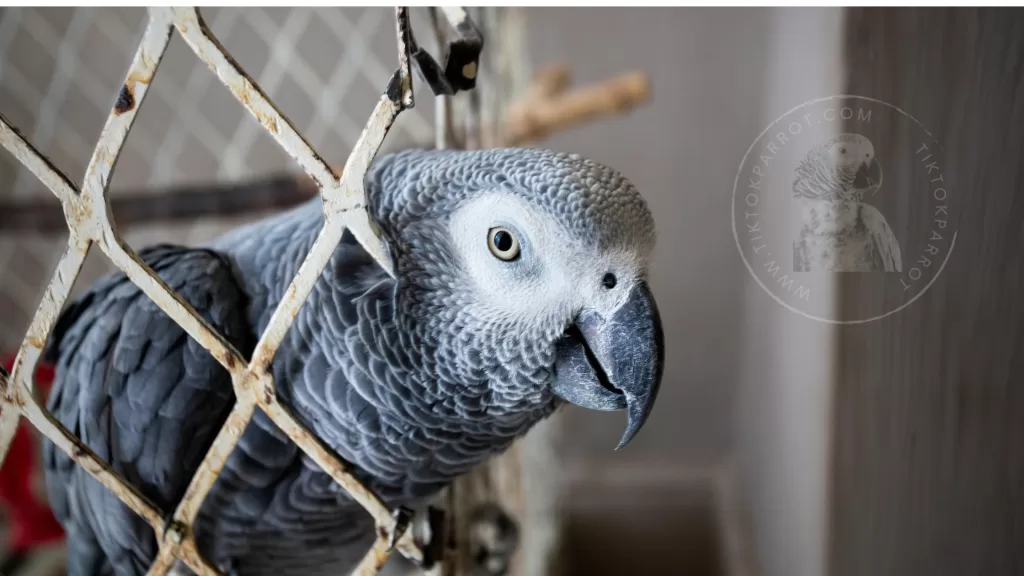
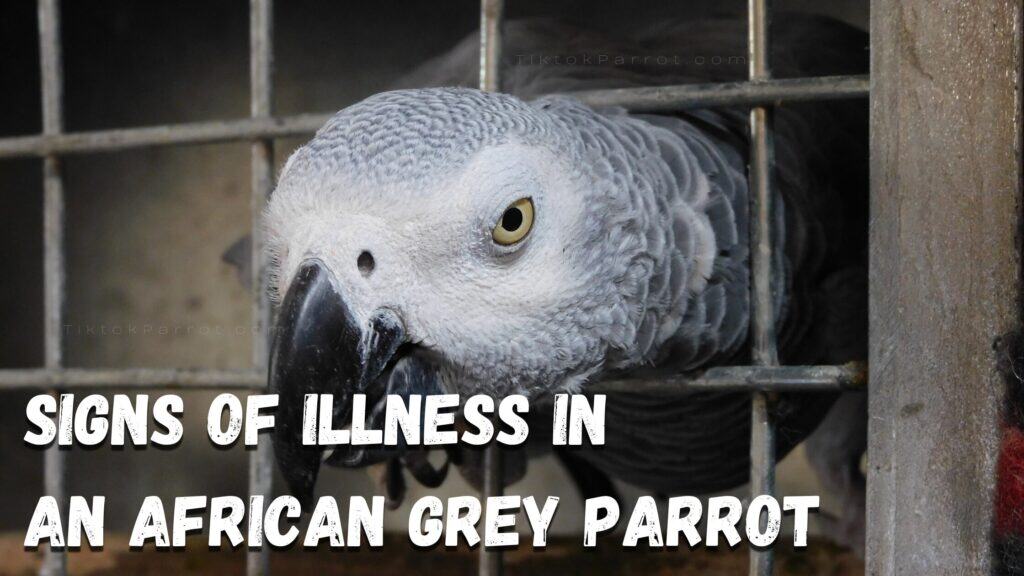
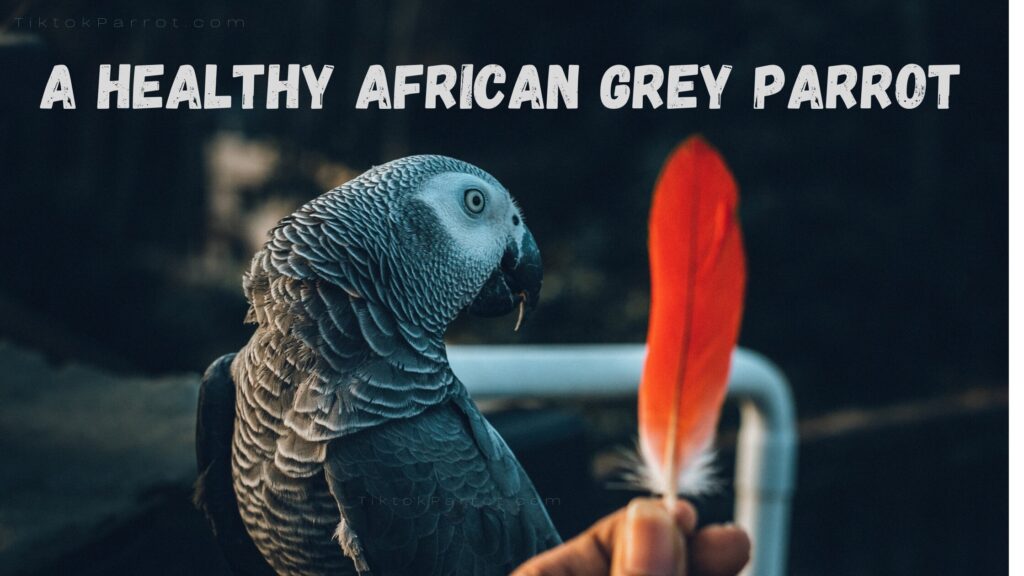
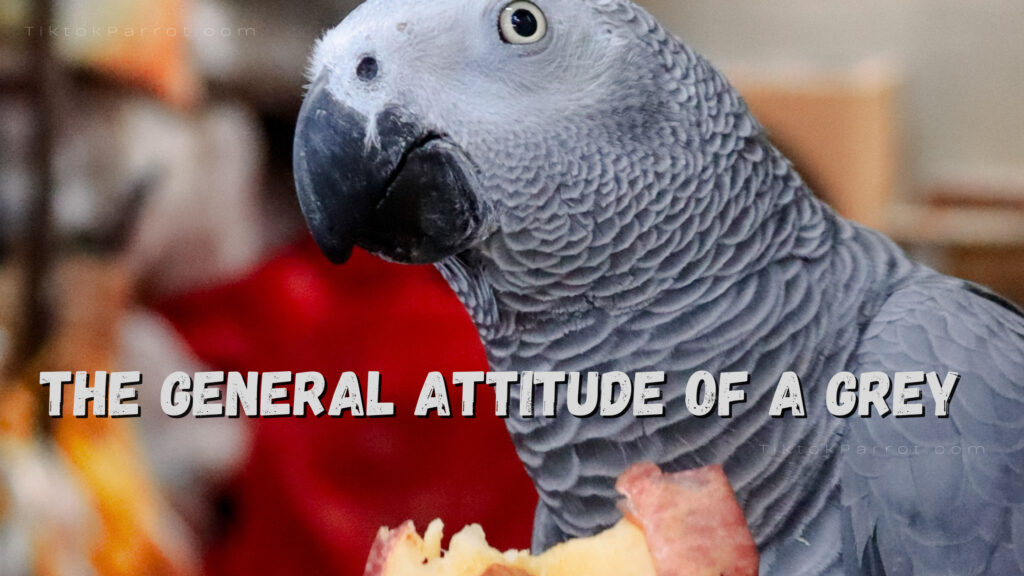

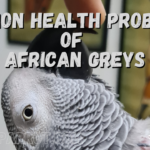









Nice weblog here! Also your website so much up very
fast! What host are you using? Can I get your affiliate link
in your host? I desire my web site loaded up as quickly
as yours lol
Thanks a lot for your feedback, I am using inMotion hosting VPS server 🙂
Greate post. Keep writing such kind of information on your site.
Im really impressed by your blog.
Hey there, You have done a great job. I’ll definitely digg it and for my part recommend
to my friends. I’m confident they’ll be benefited from this site.
Thank you so much, glad to see your feedback, much appreciated.
Hello, I enjoy reading all of your article post.
I wanted to write a little comment to support
you.
Thank you so much, much appreciated.
I’m now not positive the place you are getting your information,
but good topic. I must spend some time studying much more
or working out more. Thank you for fantastic information I
was looking for this info for my mission.
Thank you for your feedback, I’m glad to share the information and learn as well from you guys.
Incredible points. Solid arguments. Keep up the amazing effort.
Thank you so much, much appreciated.
Hello! I could have sworn I’ve been to this website before
but after reading through some of the post I realized it’s new
to me. Nonetheless, I’m definitely happy I found it and
I’ll be bookmarking and checking back frequently!
Thank you for your kind words! I’m thrilled to have you as a reader and appreciate your support in bookmarking my website. It’s great to know that my content has resonated with you, and I look forward to providing you with more informative and engaging posts in the future. Don’t hesitate to share your thoughts or suggestions – I always value my readers’ feedback.
Welcome to our community, and happy reading! 🙂
Excellent write-up. I certainly appreciate this site.
Stick with it!
Thank you so much, much appreciated.
Hey! Someone in my Myspace group shared this website with us so I came to look it over.
I’m definitely enjoying the information. I’m bookmarking and will be tweeting this to
my followers! Exceptional blog and terrific design.
Thank you for your kind support, much appreciated <3
This is a topic that is near to my heart… Take care!
Where are your contact details though?
I have social media accounts, you can see them in the top right corner of each web page in the About me box 🙂
Greetings! Very useful advice in this particular post!
It is the little changes that produce the most significant changes.
Thanks a lot for sharing!
Thank you for your feedback, much appreciated.
You’re so interesting! I do not suppose I’ve truly read through something like
that before. So nice to discover another person with original thoughts on this subject.
Seriously.. thanks for starting this up. This site is one thing that’s needed on the web, someone with a bit of
originality!
Thank you and much appreciated your kind thoughts, stay blessed.
Cheers
I am glad to hear that from you, thank you for your feedback and appreciation.
I usually do not leave a great deal of responses, but i did some searching and wound
up here Signs of Possible Illness in an African Grey parrot – TikTok
Parrot. And I actually do have some questions for you if
it’s allright. Could it be simply me or does it give the impression like some of these remarks look like
they are written by brain dead individuals? 😛 And, if you are
posting at additional online sites, I’d like to follow anything new you have to post.
Would you make a list of the complete urls of all
your social pages like your linkedin profile,
Facebook page or twitter feed?
Thank you for your feedback, all my social media links are mentioned on the website at the top right corner in About me box 🙂
I don’t know if it’s just me or if perhaps everybody
else encountering issues with your website. It appears like some of
the written text on your content are running off the screen. Can someone else please
provide feedback and let me know if this is happening to them too?
This could be a problem with my browser because I’ve had this happen previously.
Thanks
Thank you for your feedback, please try to use another web browser and let me know if you still face issues. Everything is fine from my side and website is fully working on my all devices 🙂
Normally I don’t learn article on blogs, however I wish
to say that this write-up very pressured me to check out and do it!
Your writing taste has been amazed me. Thank you, very nice article.
Thank you for your feedback, much appreciated.
Normally I do not read article on blogs, but I wish to say that this write-up
very forced me to take a look at and do so!
Your writing style has been amazed me. Thanks, quite great post.
Thank you so much, much appreciated.
Marvelous, what a weblog it is! This weblog presents helpful information to us, keep it up.
Thanks heaps, much appreciated your feedback.
Thanks for a marvelous posting! I definitely enjoyed reading it, you
will be a great author. I will ensure that I bookmark your blog
and may come back very soon. I want to encourage you to ultimately continue your great
job, have a nice morning!
Thanks heaps, much appreciated your feedback.
Touche. Great arguments. Keep up the amazing effort.
Thank you for your kind words and support! I’m glad you found the arguments presented in my blog post compelling. I appreciate your encouragement and will strive to maintain the same level of effort in future posts. Thanks again for reading!
Bravo!
Your article provided me with a lot of valuable insights, thank you for writing it.
Thank you so much for your kind words! I’m thrilled to know that you found my article helpful and that it provided you with valuable insights. It’s always my goal to create content that is informative and useful for readers like you.
If you have any questions, suggestions, or topics you’d like me to cover in the future, please feel free to reach out. I appreciate your support, and I look forward to providing you with more engaging and insightful content in the future!
Thank you admin!
You’re most welcome! 🙂